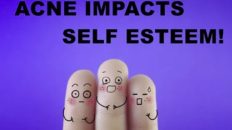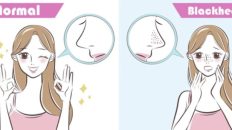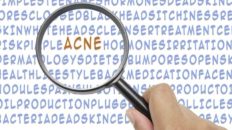Acne is a universal skin concern that has plagued individuals of all ages and backgrounds for centuries. It’s a condition that goes beyond just physical appearance; it can significantly impact one’s self-esteem and overall well-being. In this comprehensive article, we will peel back the layers to reveal the truth about acne: its causes, the myths that surround it, and the most effective solutions available today.
Understanding Acne: What Is It?
Acne is a skin condition characterized by the formation of pimples, blackheads, whiteheads, and often, painful cysts. These blemishes primarily affect areas of the body with a high concentration of oil glands, such as the face, neck, chest, back, and shoulders. Acne can range from mild, occasional breakouts to severe, persistent cases that may lead to scarring.
The Causes of Acne: Separating Fact from Fiction
Understanding the true causes of acne is essential for effective prevention and treatment. Let’s debunk some common myths and explore the actual triggers behind this skin condition.
Myth 1: Chocolate and Greasy Foods Cause Acne
Fact: While diet can influence your skin’s overall health, it’s a common misconception that chocolate and greasy foods directly cause acne. Instead, acne is primarily driven by factors like genetics, hormonal fluctuations, and skin type.
Myth 2: Poor Hygiene Leads to Acne
Fact: Acne is not the result of dirty or unclean skin. In fact, excessive scrubbing and harsh cleansers can irritate the skin and exacerbate acne. Gentle skincare practices are generally more effective.
Myth 3: Stress Is a Major Cause of Acne
Fact: Stress can exacerbate existing acne, but it is not a direct cause. Stress triggers hormonal changes that can lead to increased oil production and inflammation, making acne worse in some individuals.
Myth 4: Acne Is Only a Teenager’s Problem
Fact: While acne often begins during adolescence due to hormonal fluctuations, it can affect people of all ages, including adults. Adult acne can be related to hormonal imbalances, genetics, or other factors.
Myth 5: Squeezing Pimples Helps Them Heal Faster
Fact: Picking, squeezing, or popping pimples can lead to infection, scarring, and worsened inflammation. It’s best to leave blemishes alone or seek professional extraction if necessary.
The True Causes of Acne:
- Hormonal Fluctuations: Hormones play a significant role in acne development. Increased androgens (male hormones) can lead to excess oil production, clogging pores and promoting bacterial growth.
- Excess Oil Production: The skin’s sebaceous glands produce oil to keep it moisturized. However, an overproduction of oil can lead to clogged pores and acne.
- Clogged Hair Follicles: Dead skin cells and oil can combine to block hair follicles, trapping bacteria inside and leading to inflammation and acne.
- Bacterial Growth: Propionibacterium acnes, a type of bacteria that normally resides on the skin, can multiply within clogged pores and contribute to acne formation.
- Inflammation: Inflammatory responses in the skin can lead to redness, swelling, and the formation of pimples.
Debunking Acne Myths: What Doesn’t Cause Acne
Now that we’ve addressed some common misconceptions, let’s debunk a few more acne myths:
Myth 6: Tanning Clears Acne
Fact: Sun exposure may temporarily improve the appearance of acne due to the drying effect of UV rays, but it can worsen acne in the long run and increase the risk of skin cancer.
Myth 7: Toothpaste Treats Acne Overnight
Fact: Applying toothpaste to pimples can dry them out but can also lead to skin irritation and chemical burns. It’s not a recommended treatment.
Myth 8: Acne Is Contagious
Fact: Acne is not contagious. It is not caused by bacteria that can be transmitted through touch or close contact.
Effective Solutions for Acne:
Now that we’ve unmasked the truth about acne, let’s explore some of the most effective solutions for managing and preventing breakouts:
- Skincare Routine: Establish a gentle and consistent skincare routine that includes cleansing, exfoliating (with mild exfoliants), moisturizing, and using non-comedogenic products.
- Topical Treatments: Over-the-counter and prescription treatments containing ingredients like benzoyl peroxide, salicylic acid, and retinoids can help unclog pores and reduce inflammation.
- Prescription Medications: Dermatologists can prescribe oral antibiotics, hormonal treatments, or isotretinoin (Accutane) for severe or persistent acne.
- Lifestyle Modifications: Maintain a healthy diet, manage stress through relaxation techniques, and avoid smoking, as these can all impact your skin’s health.
- Avoid Picking: Resist the urge to pick or pop pimples to prevent scarring and further inflammation.
- Professional Treatments: Dermatologists offer a range of professional treatments, including chemical peels, microdermabrasion, and laser therapy, to target acne and its aftereffects.
- Hormonal Management: In cases of hormonal acne, hormonal birth control methods or medications like spironolactone may be prescribed.
- Personalized Approach: Consult a dermatologist for a personalized treatment plan tailored to your unique skin type and acne severity.
Conclusion
Acne is a common but often misunderstood skin condition that affects people of all ages. Separating fact from fiction and understanding the true causes of acne is crucial for effective prevention and treatment. By adopting a consistent skincare routine, making lifestyle adjustments, and seeking professional guidance when necessary, you can unmask the truth about acne and take control of your skin’s health. Clear, radiant skin is achievable, and with the right knowledge and dedication, you can banish blemishes and boost your self-confidence.



